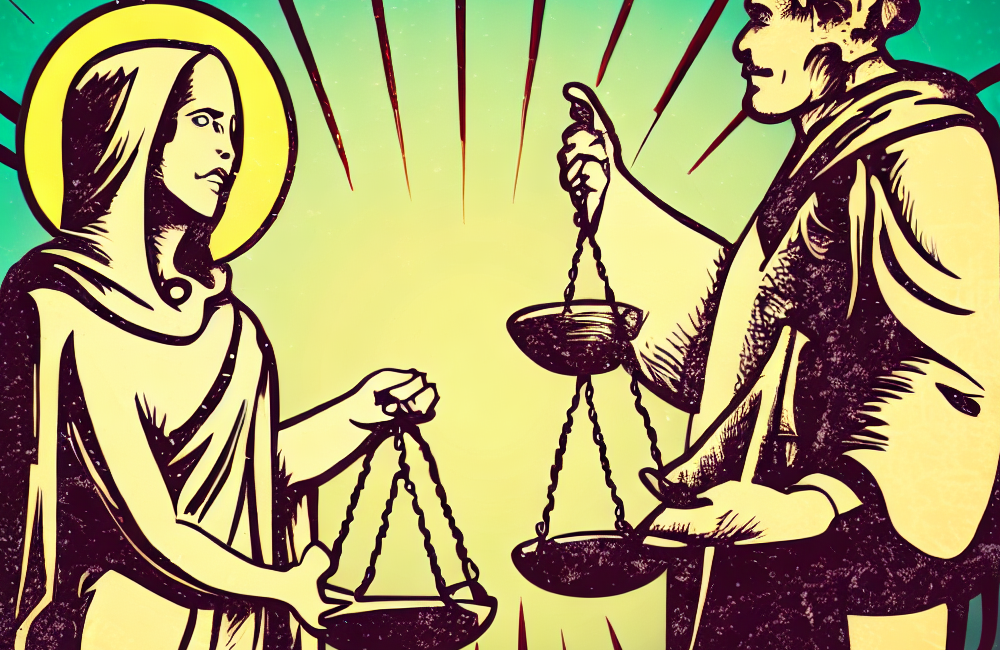Ethics and moral philosophy serve as guiding frameworks for determining what is right and wrong, just and unjust, in our personal and societal interactions. Rooted in centuries of philosophical inquiry, ethics explores the nature of morality, human values, and ethical theories that shape our moral judgments. In this article, we delve into the fascinating realm of ethics, examining its significance, exploring prominent ethical theories, and considering the implications for our daily lives.
- Understanding Ethics:
Ethics is the study of moral principles that govern human behavior and the concepts of right and wrong. It seeks to answer fundamental questions about how we ought to live and make decisions. Ethics provides a foundation for evaluating our actions, relationships, and the consequences they bear on individuals and communities.
- Normative Ethics: Theories of Right Conduct:
Normative ethics focuses on prescribing and evaluating moral standards and principles. Various ethical theories have emerged to provide frameworks for determining what actions are morally right or wrong. These include consequentialism (focusing on outcomes), deontology (emphasizing duty and moral rules), and virtue ethics (concentrating on cultivating virtuous character).
- Utilitarianism: Maximizing the Greater Good:
Utilitarianism, a consequentialist theory, asserts that actions should be judged based on their overall consequences in maximizing happiness or well-being for the greatest number of people. It prioritizes the outcomes and seeks to achieve the greatest overall utility or happiness in decision-making.
- Kantian Ethics: Acting Out of Duty:
Immanuel Kant’s deontological theory emphasizes acting out of duty and adherence to moral principles. According to Kant, moral decisions should be guided by the categorical imperative, which states that individuals should act in a way that their actions could be universally applied without contradiction.
- Virtue Ethics: Cultivating Moral Character:
Virtue ethics, as championed by philosophers like Aristotle, emphasizes the cultivation of virtuous character traits. It focuses on developing virtues such as honesty, courage, compassion, and justice, which guide moral actions. Virtue ethics places emphasis on personal character rather than solely focusing on rules or consequences.
- Applied Ethics: Ethical Dilemmas in Society:
Applied ethics examines ethical issues and dilemmas that arise in specific contexts, such as bioethics, environmental ethics, business ethics, and medical ethics. These areas explore the application of ethical theories to real-world situations, addressing complex moral challenges faced by individuals, professionals, and societies.
- Ethical Relativism and Cultural Diversity:
Ethical relativism posits that moral principles are subjective and vary across cultures or individuals. It suggests that what is morally right or wrong is determined by cultural or personal preferences. However, ethical relativism raises questions about the universality of ethics and the potential for cultural biases.
Ethics and moral philosophy play a crucial role in shaping our understanding of right and wrong, guiding our actions, and fostering a more just and compassionate society. By engaging in ethical inquiry, we develop a greater awareness of our moral responsibilities and the consequences of our choices. Whether we navigate ethical dilemmas through consequentialist, deontological, or virtue-based approaches, ethical reasoning allows us to critically examine our values, actions, and their impact on others. By continually exploring ethics, we contribute to the ongoing dialogue about morality, justice, and the pursuit of a more ethically informed world.

